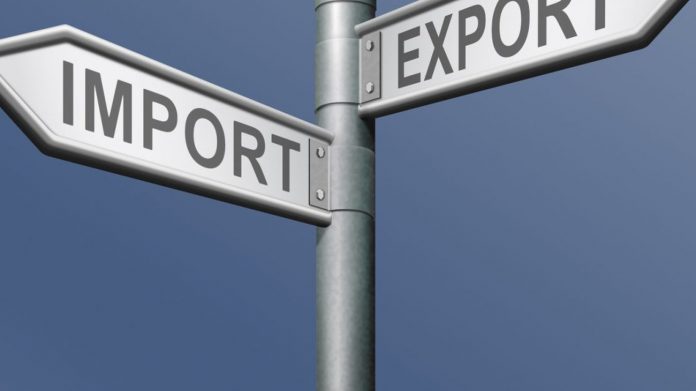KARACHI: It is a great challenge for the incoming government of Pakistan Tehreek-e-Insaaf (PTI) and its expected Finance Minister Asad Umer to overcome the rising trade gap and increased exports which have been continuously stagnant for the last three years.
In the first month of July 2018, the country’s exports stood at $1.646 billion, up by 1.17 per cent compared to July 2017, while it went down by 12.77 per cent compared to June 2018, the data of Pakistan Bureau of Statistic (PBS) said here on Monday.
According to the data, the trade deficit of the country slightly increased by 0.31 per cent to $3.192 billion in July 2018 compared to $3.182 billion in July 2017. The trade deficit, however, declined by 16.15 per cent compared to $3.807 billion stood in June 2018.
Country’s import in the first month of the current fiscal year stood at $4.838 billion, which is up by 0.60 per cent compared to July 2017 and declined by 15.03 per cent compared to June 2018.
The import bills had touched $55.8 billion in 2017-18 which is more than double of the total export’s inflows of $24.772 billion.
The State Bank of Pakistan (SBP) has issued a list of 131 items to impose 100 per cent cash margin on the import of goods to overcome the rising imports of luxurious goods.
Despite all efforts of the Pakistan Muslim League-Nawaz (PML-N) government to reduce the current account deficit (CAD), it further widened to $18 billion in 2017-18 which is almost 43 per cent greater when compared to 2016-17.
The incoming government of Imran Khan must implement long-term policies that can improve the overall competitiveness of Pakistani industries rather than repeatedly apply ineffective short-term measures.
The previous policies of Nawaz Sharif only supported a few selected exporters, the market experts said.
In the first week of July 2018, the central bank devalued the Pak Rupee by around 5.5 per cent in the interbank market to Rs128.50, but as the election 2018 were held, the rupee gained by Rs 4 in the interbank market and being traded at Rs123.80 for buying and Rs124.00 for selling today.
The Rupee has been devalued for the fourth time since December 2017. The government had devalued Pak Rupee by 5 per cent on December 8, 2017, to Rs110, 4.5 per cent to Rs115 on March 20, 2018, and 5 per cent to Rs121. During the last 10 years, the Rupee devalued annually by around 5 per cent.
























